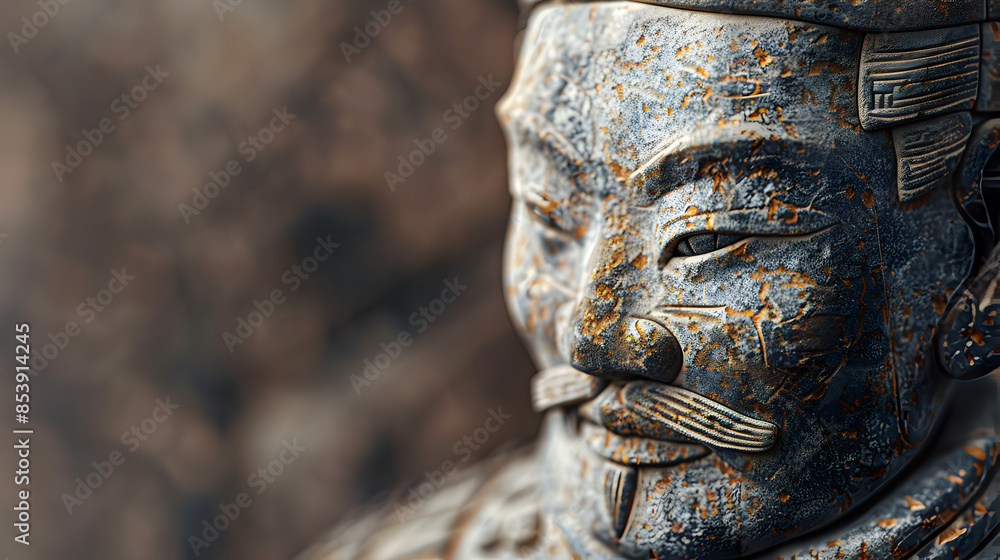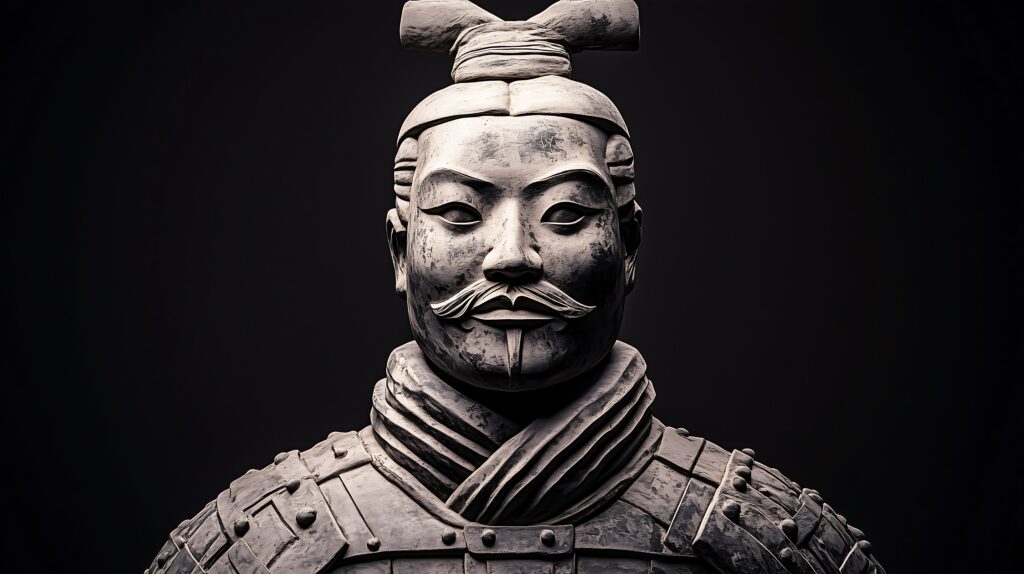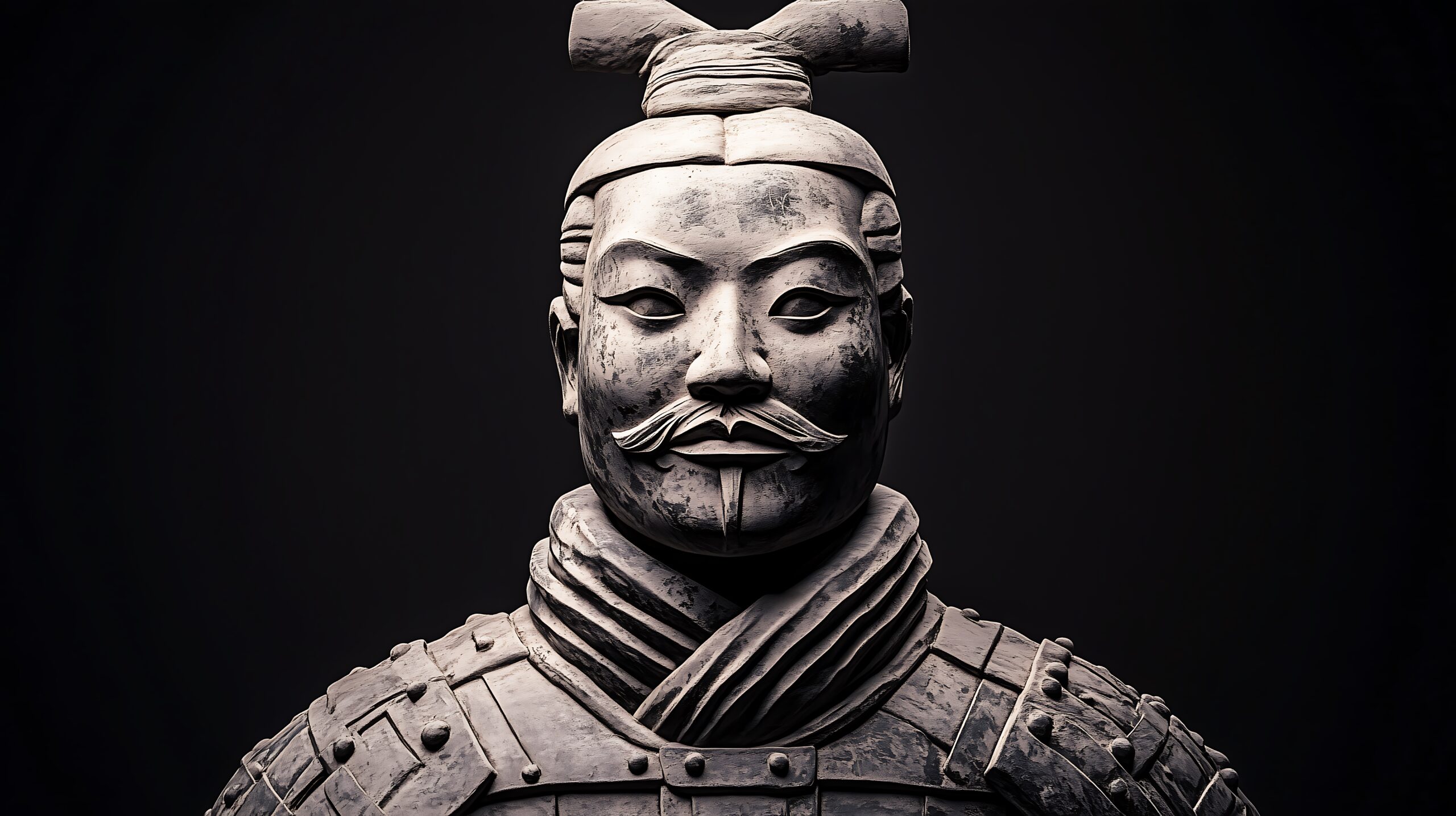Table of Contents
ToggleSun Tzu: The Master Strategist
Ancient Philosopher of Warfare and Strategy
Introduction: The Enduring Legacy
Sun Tzu (traditionally 544-496 BCE) remains history’s most influential military theorist, whose Art of War has transcended its origins to become essential reading for generals, CEOs, and strategists worldwide. While historical details of his life remain debated among scholars, his strategic principles have stood the test of time.
Key Facts About Sun Tzu
Full Name: Sun Wu (孙武) – “Tzu” is an honorific meaning “Master”
Historical Era: Spring and Autumn Period of ancient China
Legacy: Authored The Art of War, history’s most studied military treatise
Modern Influence: Required reading at West Point and Harvard Business School
The Life and Times of Sun Tzu
Early Years in Qi State
Sun Tzu was likely born into a military family in China’s Qi State (modern Shandong province), where he:
Studied ancient military texts and historical campaigns
Observed the constant warfare between Chinese states
Developed revolutionary ideas about strategy and leadership
Historical Note: The first reliable accounts of Sun Tzu appear in Sima Qian’s Records of the Grand Historian (91 BCE), written over 400 years after his supposed lifetime.
Service to the Wu Kingdom
Sun Tzu’s most famous demonstration of leadership—the Palace Maids Test—illustrates his core philosophy:
Challenge: Transform the king’s concubines into disciplined soldiers
Lesson: Strict enforcement of commands is essential
Result: Instant, flawless discipline proving his principles
Scholarly Context: While this story first appears in 1st-century CE texts, it effectively conveys Sun Tzu’s emphasis on clear command structures.
The Art of War: Sun Tzu's Masterpiece
Core Strategic Principles
✔ Deception: “All warfare is based on deception”
✔ Adaptability: “Be formless like water”
✔ Efficiency: “The supreme art of war is to subdue the enemy without fighting”
✔ Preparation: “Victorious warriors win first and then go to war”
The Text's Historical Journey
Original Core: Likely composed in 5th century BCE
Warring States Additions: Expanded with advanced tactics
Han Dynasty Standardization: Edited for military education
Global Reach: Translated into 50+ languages
Archaeological Note: The 1972 discovery of the Yinqueshan Han slips confirmed variations in early versions of the text.
Sun Tzu's Modern Relevance
Military Applications
Required study at military academies worldwide
Influenced strategies from ancient China to modern warfare
Business Strategy
Executives apply Sun Tzu’s principles to:
Competitive market positioning
Negotiation tactics
Corporate leadership
Cultural Influence
His ideas appear in:
Sports coaching philosophies
Political campaign strategies
Artificial intelligence development
Why Sun Tzu Matters Today
In our complex world, Sun Tzu’s emphasis on:
✅ Strategic Foresight
✅ Psychological Insight
✅ Adaptive Thinking
…makes The Art of War essential reading for:
Business leaders navigating competitive markets
Professionals managing complex challenges
Individuals pursuing personal growth


